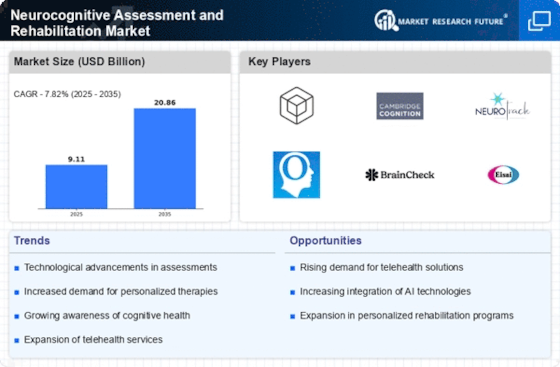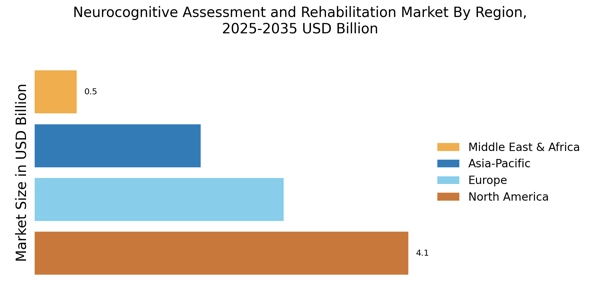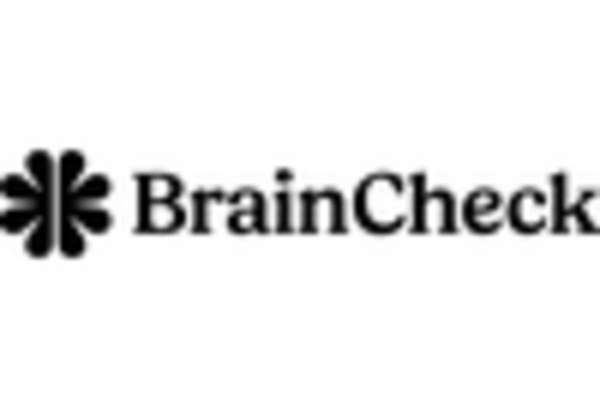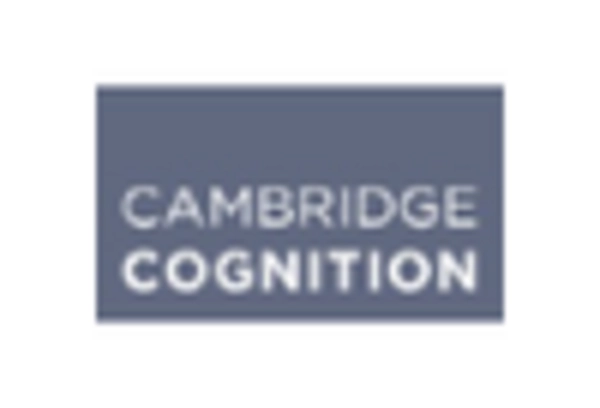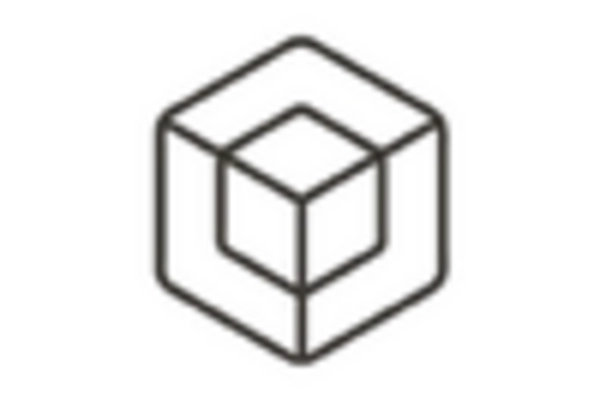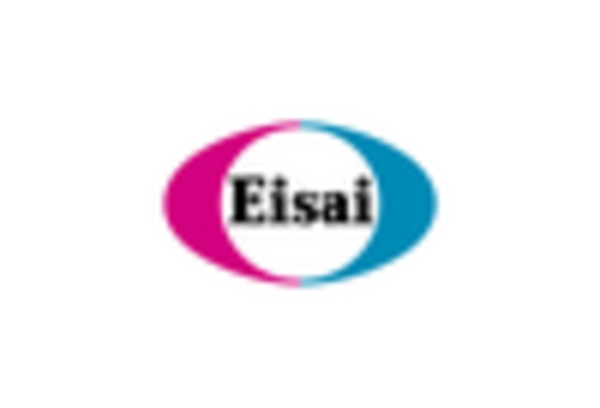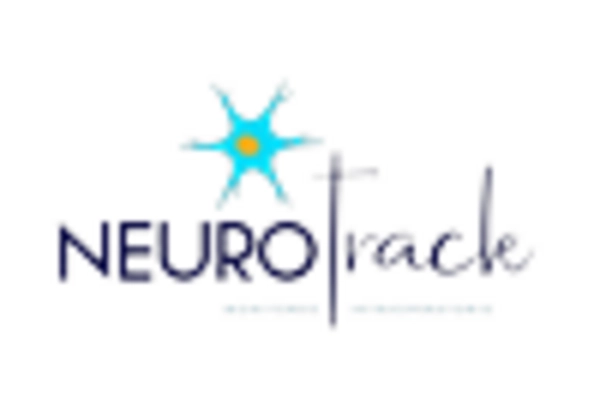Increased Awareness and Education
Growing awareness regarding neurocognitive health is driving the Neurocognitive Assessment and Rehabilitation Market. Educational initiatives aimed at both healthcare professionals and the general public are fostering a better understanding of cognitive disorders and the importance of early detection. This heightened awareness encourages individuals to seek assessments and rehabilitation services, thereby increasing market demand. Furthermore, campaigns promoting brain health and cognitive wellness are gaining traction, leading to a cultural shift towards proactive cognitive care. As more people recognize the value of neurocognitive assessments, the market is likely to experience a surge in demand for both assessment tools and rehabilitation programs, ultimately benefiting the Neurocognitive Assessment and Rehabilitation Market.
Government Initiatives and Funding
Government initiatives aimed at improving mental health services are significantly influencing the Neurocognitive Assessment and Rehabilitation Market. Various countries are implementing policies to enhance access to neurocognitive assessments and rehabilitation services, recognizing the societal impact of cognitive disorders. Increased funding for research and development in this field is also evident, with governments allocating resources to support innovative solutions. For instance, public health campaigns and funding for community-based rehabilitation programs are becoming more prevalent. These initiatives not only improve access to care but also stimulate market growth by encouraging the development of new assessment tools and rehabilitation methodologies. As governments continue to prioritize mental health, the Neurocognitive Assessment and Rehabilitation Market is expected to thrive.
Rising Prevalence of Neurocognitive Disorders
The increasing incidence of neurocognitive disorders, such as Alzheimer's disease and other dementias, is a primary driver of the Neurocognitive Assessment and Rehabilitation Market. According to recent estimates, the number of individuals affected by these conditions is projected to reach 152 million by 2050. This surge necessitates enhanced assessment tools and rehabilitation strategies, thereby propelling market growth. As healthcare systems strive to address this growing challenge, investments in innovative neurocognitive assessment technologies are likely to rise. Furthermore, the aging population contributes significantly to this trend, as older adults are more susceptible to cognitive decline. Consequently, the demand for effective neurocognitive assessments and rehabilitation services is expected to escalate, fostering advancements in the Neurocognitive Assessment and Rehabilitation Market.
Technological Advancements in Assessment Tools
Technological innovations are transforming the Neurocognitive Assessment and Rehabilitation Market, leading to the development of sophisticated assessment tools. The integration of artificial intelligence, machine learning, and neuroimaging techniques enhances the accuracy and efficiency of cognitive assessments. For instance, AI-driven platforms can analyze vast amounts of data to identify cognitive impairments at earlier stages. This technological evolution not only improves diagnostic capabilities but also facilitates personalized rehabilitation programs tailored to individual needs. The market for neurocognitive assessment tools is anticipated to grow significantly, with projections indicating a compound annual growth rate of over 10% in the coming years. As healthcare providers increasingly adopt these advanced technologies, the Neurocognitive Assessment and Rehabilitation Market is poised for substantial expansion.
Collaboration Between Healthcare Providers and Technology Firms
The collaboration between healthcare providers and technology firms is emerging as a crucial driver of the Neurocognitive Assessment and Rehabilitation Market. Partnerships are fostering the development of integrated solutions that combine clinical expertise with technological advancements. For example, healthcare organizations are increasingly working with tech companies to create platforms that streamline the assessment process and enhance rehabilitation outcomes. This synergy not only improves the quality of care but also accelerates the adoption of innovative assessment tools. As these collaborations become more common, the market is likely to witness a surge in the availability of comprehensive neurocognitive assessment and rehabilitation solutions. This trend indicates a promising future for the Neurocognitive Assessment and Rehabilitation Market.


